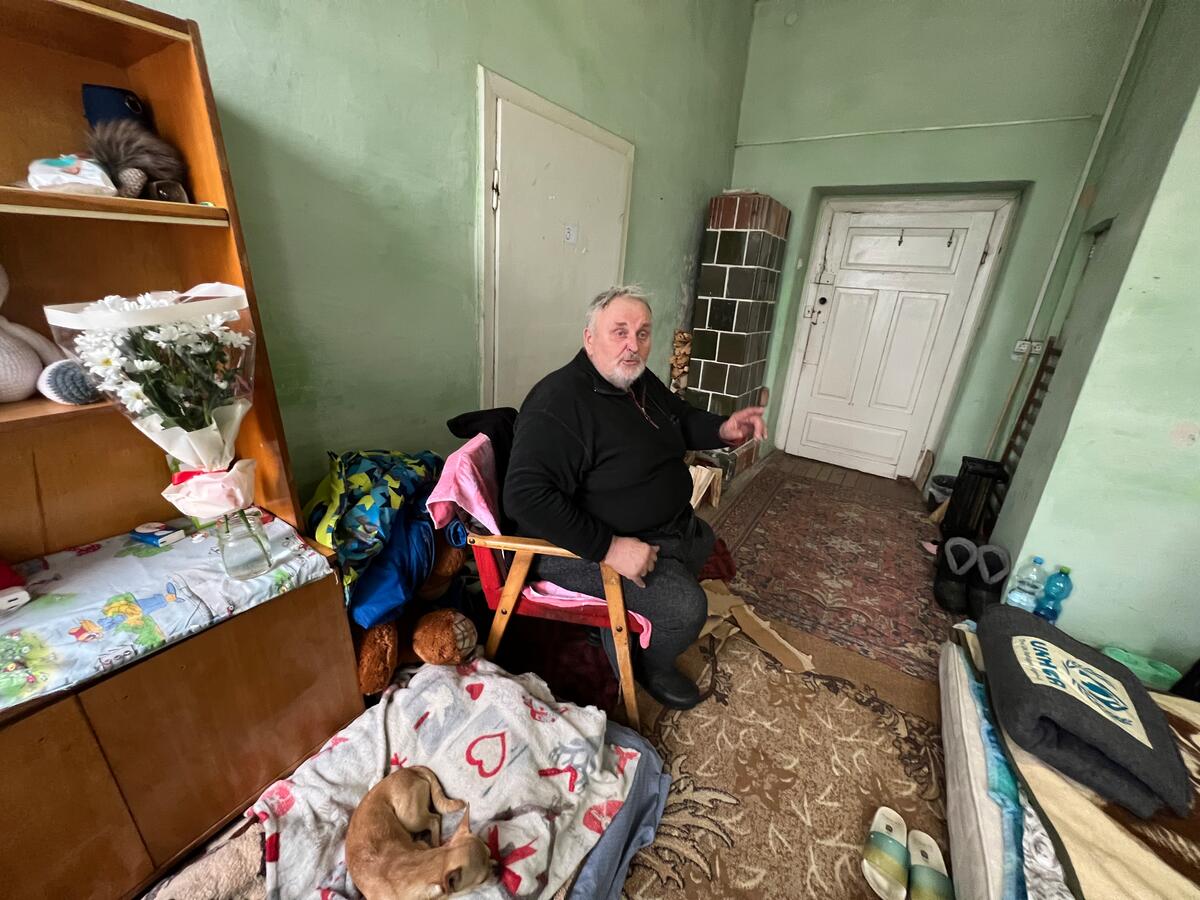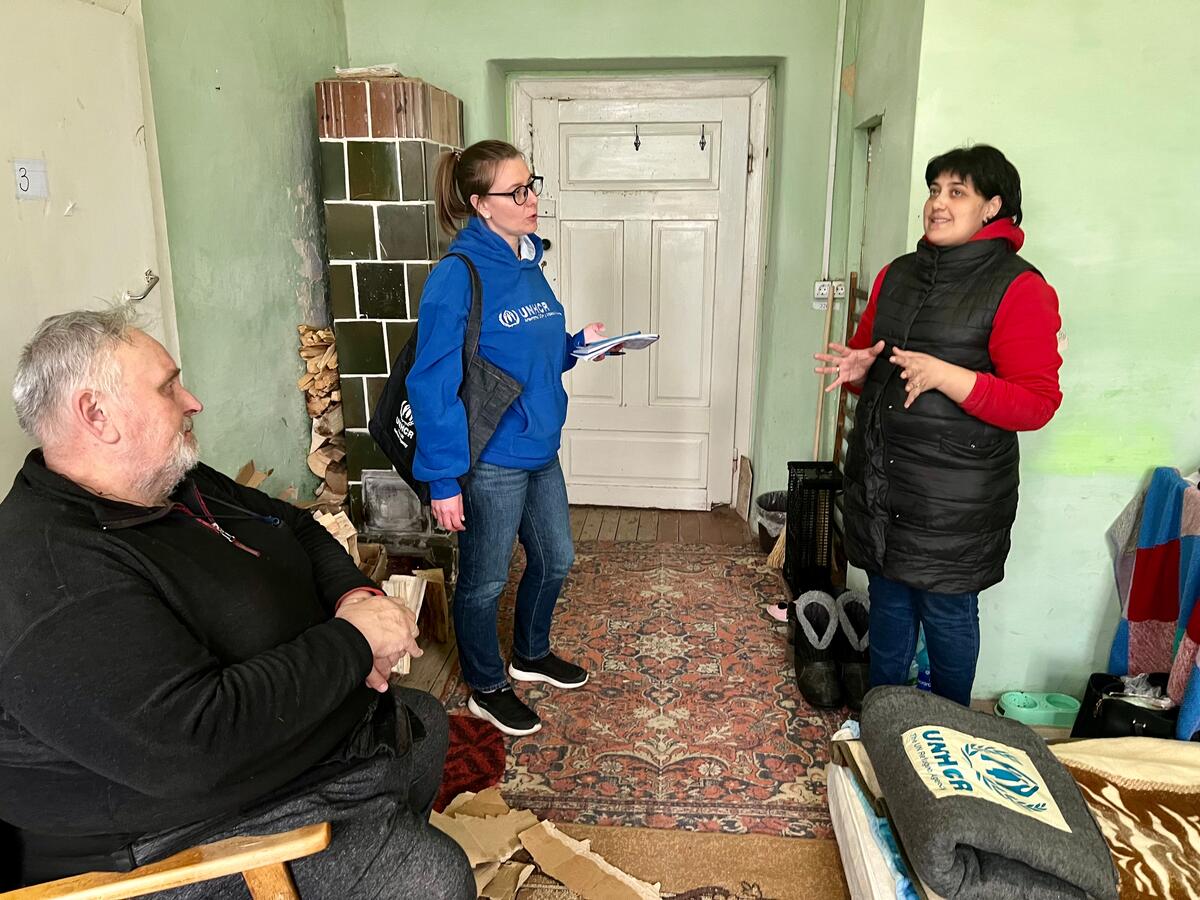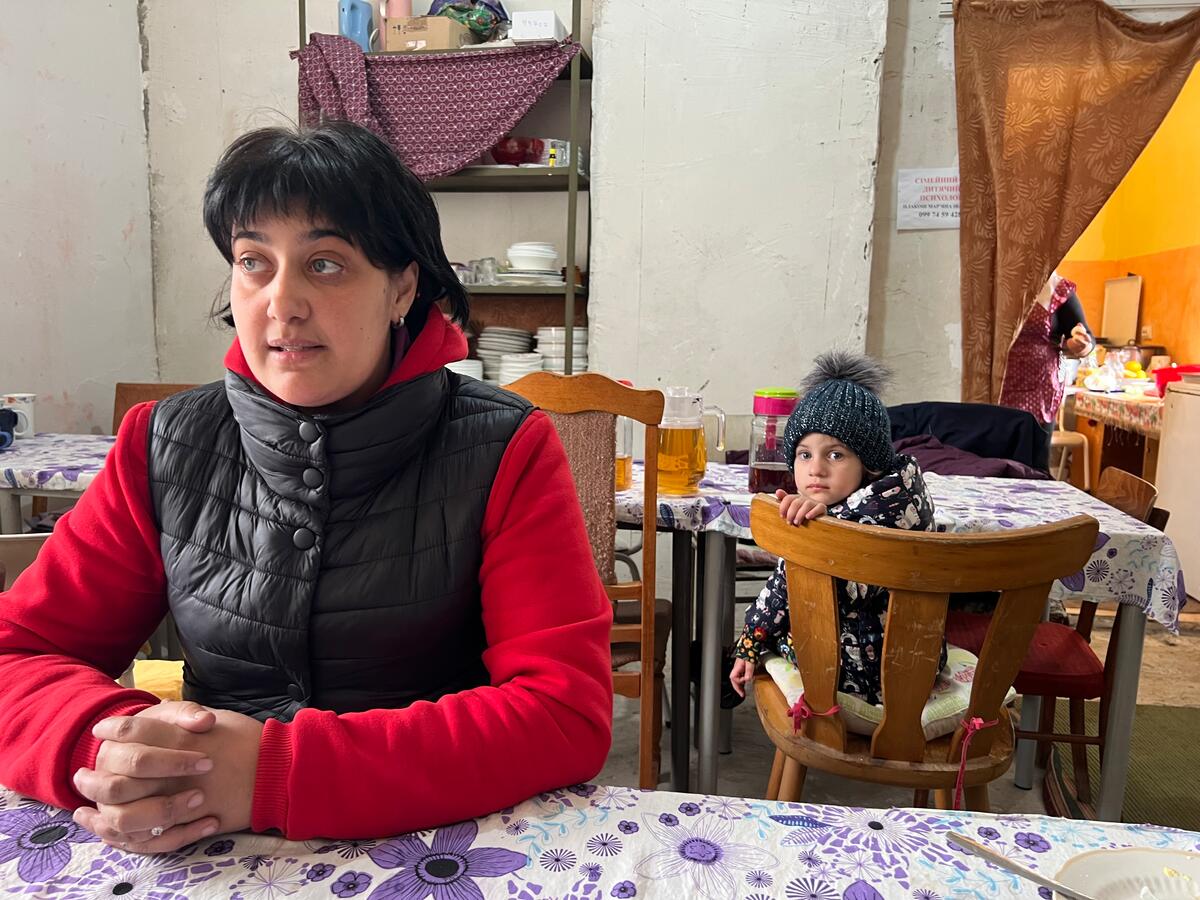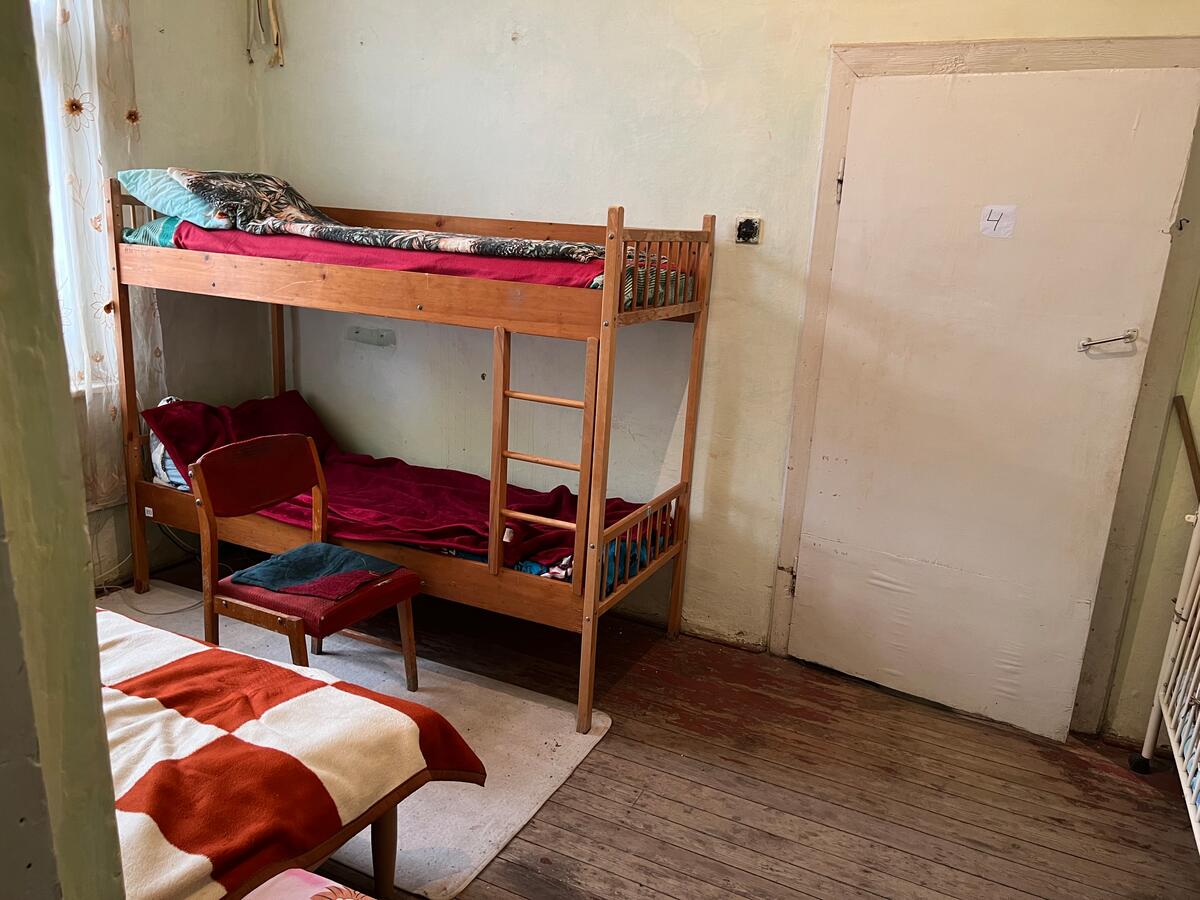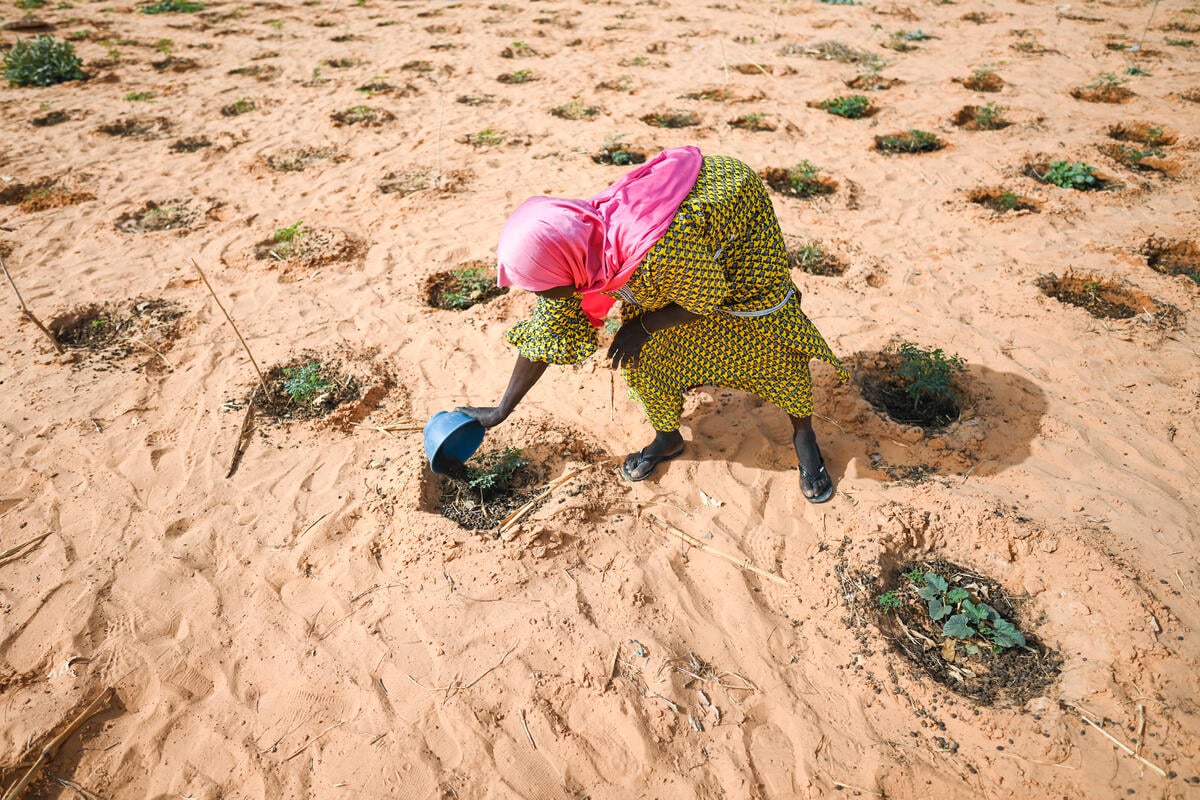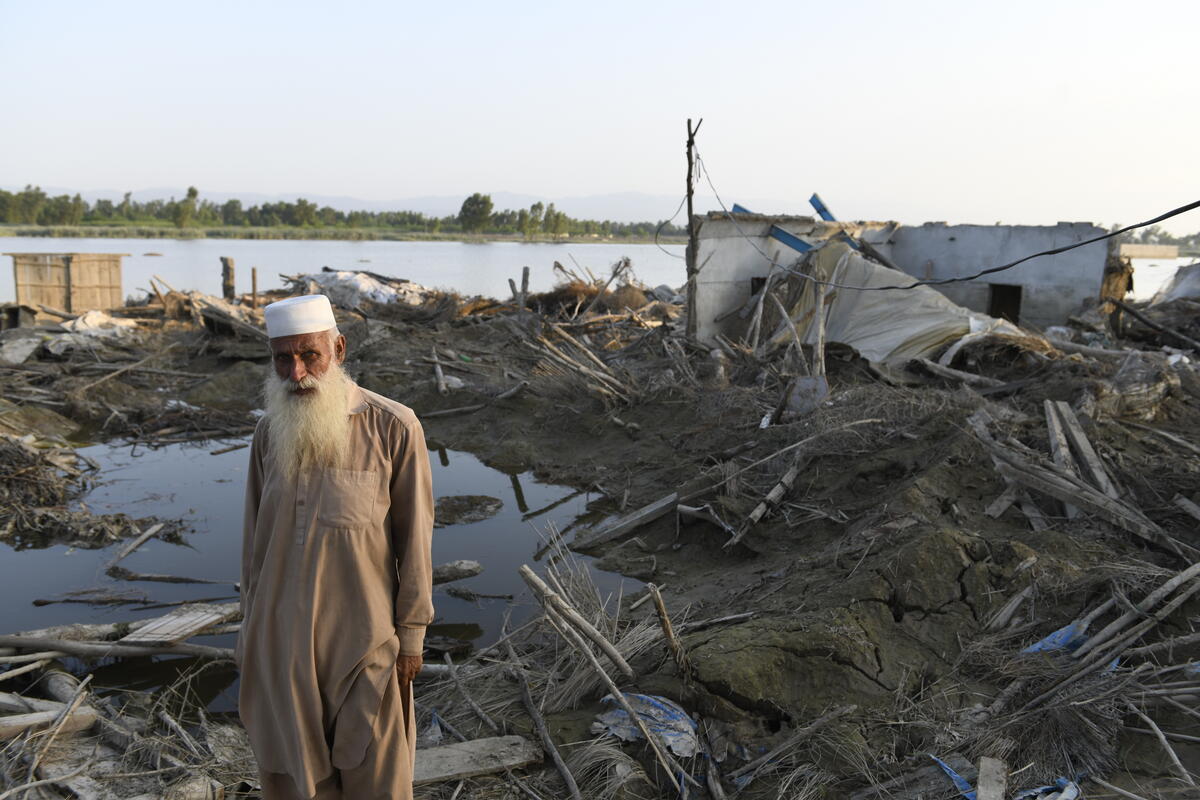Ukrainian volunteer rallies village to welcome displaced families
Ukrainian volunteer rallies village to welcome displaced families
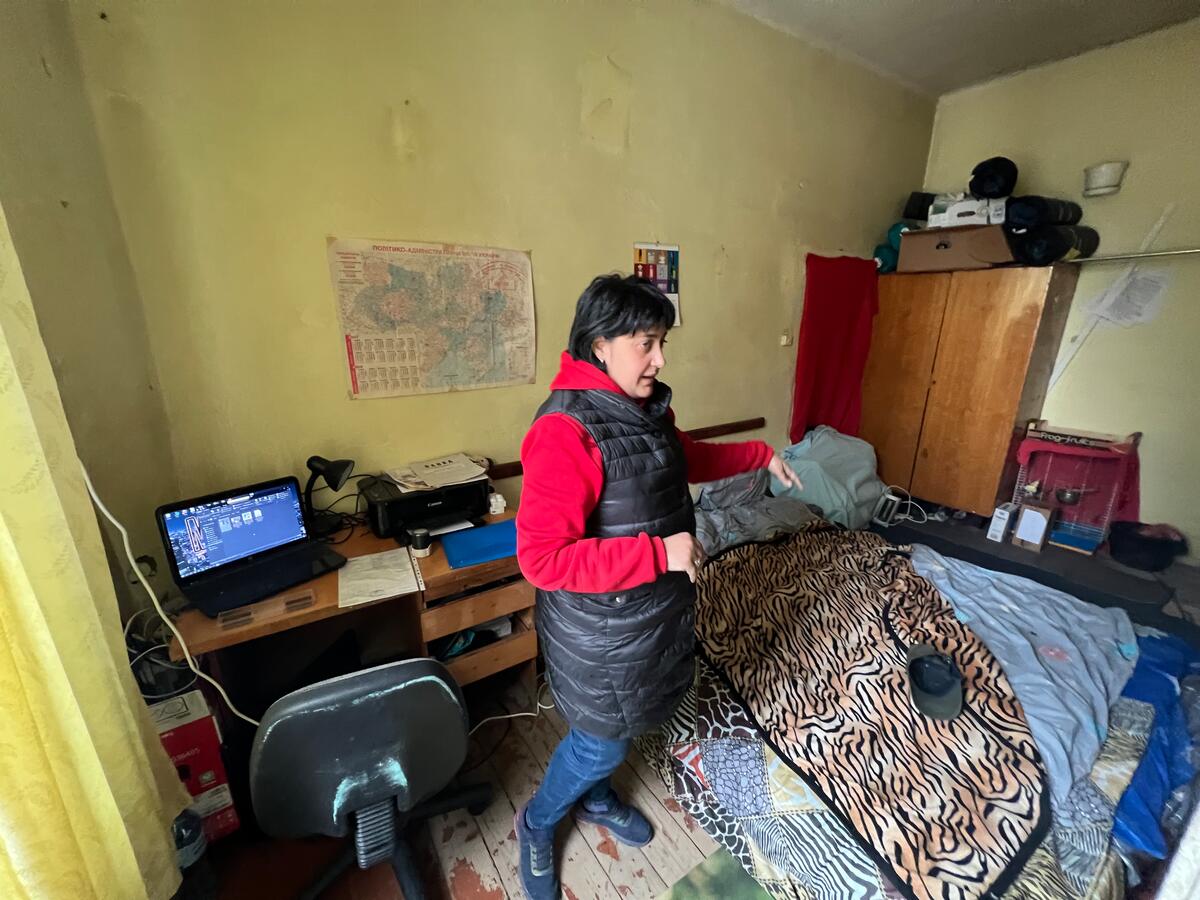
In late February, when Rymma Mytrak saw reports of families fleeing heavy fighting in other parts of Ukraine and moving west in search of safety, she decided to act.
The 35-year-old former hairdresser knew from personal experience how important a place of safety is for those with nowhere else to go.
“I am from an orphanage myself, so I felt I must do everything possible to help people who – like myself many years ago – needed support,” she explained.
Mytrak decided to open a shelter for internally displaced people (IDPs) in her village Velykyi Bereznyi, close to Ukraine’s western border with Slovakia. With no property of her own, she shared her idea on social media and within days the village had rallied to convert an unused storage facility into a hostel for 80 people.
“I made an announcement on Facebook about my plans to start a hostel. Four days later, we were already able to start hosting people,” she says.
With limited equipment, Mytrak had to be creative to get the facility ready to receive its first guests. “In this room for example we made beds out of office desks. We used all the resources we had at hand.”
Another small room off the building’s long corridor has three sets of bunkbeds squeezed inside, and there is also a communal kitchen equipped with donated appliances and a dining hall with dozens of mismatched chairs arranged at long trestle tables.
Mytrak was helped in her efforts by her husband Ruslan – a former military chaplain – and a group of willing volunteers that grew in number after the first families began to arrive.
“There were 15 volunteers, all eager to help,” Mytrak says. “And those first IDPs who came here, they started to volunteer too.”
To manage the work involved in hosting, feeding, and taking care of so many people, Mytrak and her husband and two children moved into a room at the hostel which doubles as her office. Some of those who arrive move on after only a night, but many have remained for longer.
Among them is Victor Nastych, who arrived with his wife and daughter after fleeing their home in Brovary, an eastern suburb of the capital Kyiv, and was grateful for the offer of accommodation and warm food.
“I think there should be a monument glorifying Rymma,” Nastych says. “She has no property, no house. She does everything for people. She goes to the village council and asks for help. Many people know her and try to help.”
With an estimated 7.1 million people currently displaced inside Ukraine, UNHCR, the UN Refugee Agency is supporting the expansion and establishment of reception centres and providing relief items and other forms of support to those in need. So far, UNHCR has supported the expansion of more than 70 reception centres around the country, each of which can host around 250 displaced people.
As part of these wider efforts, the agency recently provided the shelter in Velykyi Bereznyi with thermal blankets to help keep residents warm as nighttime temperatures drop close to freezing.
"Every minute is stressful"
The team that delivered the blankets and met with residents to assess their needs included Nadiia Vakhovska, who recently joined UNHCR Ukraine and knows from personal experience what it means to flee your home.
“In 2014, there was heavy fighting in Luhansk where I am from. Me and my husband packed a small bag and left, hoping we will come back in just a few weeks. But we never returned,” Vakhovska explains.
She and her husband moved several times before settling in Bucha, a small town 30 kilometres from Kyiv, which in recent days has been the focus of global attention due to the horrific images of people's bodies lying in the streets. The town was previously a haven for others displaced from eastern Ukraine in 2014 and 2015, who took advantage of the cheaper accommodation and proximity to the employment opportunities of the capital.
When Bucha first came under heavy bombardment at the start of the current conflict, Vakhovska was forced to flee again when their house was irreparably damaged. Now, she hopes to use her experience to help others suffering displacement for the first time.
“Knowing what it is to be a displaced person, I now can offer support and advise to other people,” Vakhovska says. “We overcame the consequences of the first displacement. It gives us hope that we will be able to manage the second displacement too. But despite having this experience and knowledge, it is very difficult and painful. Every minute is stressful.”

